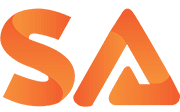© 2025 Macro Global. All Rights Reserved.
Traverse the article
The Financial Services Compensation Scheme safeguards customers’ interests by offering compensation in case of financial firm failure, utilising Single Customer View, which provides a comprehensive snapshot of an organisation’s qualified depositors. Accurate and expeditious SCV reporting is essential to guarantee that depositors receive the compensation to which they are entitled.
As the financial landscape advances due to increased digitalisation and regulatory scrutiny, the necessity for strong security and compliance controls in FSCS SCV reporting has never been greater. The complex interplay between data privacy, accuracy, and speed demands an integrated approach for handling and securing sensitive consumer information. In this blog, we will discuss the significance of maintaining strict security and compliance standards when it comes to FSCS SCV regulatory reporting.
Cryptography for Total Data Control
Cryptography is essential for guaranteeing data security and compliance in FSCS SCV reporting:
- Data Encryption: Encrypts data at rest and in transit, meeting data protection laws and preventing data breaches.
- Confidentiality: Transforms sensitive information into ciphertext using encryption methods and keys, ensuring that unauthorised individuals cannot access or understand protected information.
- Data Integrity: Checks for transmission tampering. To comply with data integrity laws, organisations could resort to cryptographic hashing methods to keep data clean and uncorrupted. This is crucial for FSCS SCV reporting as it ensures that the data being reported is accurate and has not been altered.
- Access Control: Uses cryptographic keys to limit access to sensitive data, allowing organisations to develop effective access control techniques and meet FSCS SCV regulatory requirements.
- Auditing and Logging: Effective compliance reporting requires secure logs and audit trails generated by cryptography, helping organisations meet regulatory requirements.
Moreover, Cryptography techniques enable financial organisations:
- To protect sensitive data housed on servers, databases, or the cloud.
- To safeguard lines of communication and allow organisations to safely transfer critical information.
- To integrate with Identity and Access Management (IAM) systems, ensuring that only authorised individuals have access to important systems and data.
- Tokenisation converts sensitive data into non-sensitive equivalents, lowering the scope of compliance audits as sensitive data is no longer stored or transmitted.
- Blockchain relies largely on cryptographic techniques to safeguard transactions and maintain an immutable record, ensuring compliance with transparency and data integrity.
- Cryptographically created digital signatures validate the origin and integrity of electronic documents, affirming their legality.
Ensuring Regulatory Readiness in Cloud-Enabled Systems
Cloud-based solutions for FSCS Single Customer View reporting are gaining popularity due to their scalability, flexibility, and accessibility. They let organisations to efficiently handle massive amounts of customer data, protect sensitive information, and provide real-time data processing to generate complete and accurate SCV reports.
These technologies help cut infrastructure and maintenance expenses, resulting in increased operational efficiency. They also provide seamless integration with core banking systems, enhancing the customer experience.
Key considerations for achieving fully compliant cloud-based solutions, with a focus on FSCS Single Customer View (SCV) reporting:
- Regulatory Compliance: Select a cloud provider that adheres to major data regulatory requirements such as GDPR, ISO 27001, and other industry-specific regulations that govern SCV reporting. Check the cloud provider’s compliance certifications and framework.
- Shared Responsibility Model:Establish a clear division of compliance responsibilities between your organisation and the cloud provider. While you oversee data security and user access, the provider ensures infrastructure and platform compliance.
- Data Protection and Encryption: Prioritise cloud providers who provide strong data protection measures, such as encryption of data at rest and in transit, ensuring the security of customer data in the SCV reporting system.
- Access Controls and Identity Management: Use robust identity and access management (IAM) policies to restrict access to SCV data within the cloud. Use multi-factor authentication (MFA) to secure and prevent vulnerabilities.
- Compliance Training and Awareness: Schedule frequent training and awareness workshops for your SCV reporting team members to ensure they are up to date on regulatory compliance and the latest trends in the cloud.
Hence, selecting the appropriate cloud-based FSCS SCV reporting solution that meets all the above criteria to guarantee regulatory compliance, data security, and operational efficiency is critical. Financial institutions can mitigate potential risks and make informed decisions by meticulously assessing these factors.
Building Trust: ISO Framework for FSCS SCV Reporting
ISO compliance can play a crucial role in several aspects:
Data Security
- ISO/IEC 27001 and ISO/IEC 27018 standards focus on information security and personally identifiable information (PII) protection.
- Adherence to these standards helps secure sensitive customer data.
- ISO/IEC 27701 ensures organisations handle customer privacy information in accordance with best practices and local laws.
- ISO 9001:2015 standard helps maintain a state of constant improvement and ensure quality of service in regulatory reporting.
Importance of ISO Compliance in Regulatory Reporting
- Increases customer trust and confidence in the security, privacy, and quality of financial service provider’s reporting practices.
- Aids in managing risks associated with regulatory reporting.
- Demonstrates compliance with international best practices, allowing for market expansion.
Shield Your Business from Financial Crime
The Financial Conduct Authority is proposing updates to the Financial Crime Guide to address emerging threats and regulatory frameworks in the financial sector.
- Key areas include enhanced financial sanctions, proliferation financing, transaction monitoring, navigating the crypto asset landscape, consumer duty, and preparing for consequential changes.
- Maintaining compliance with the FCA’s Financial Crime Guide is essential for firms seeking to detect, assess, and mitigate financial crime risks, avoid regulatory penalties, and create a safer financial environment for customers.
- The proposal also allows early adoption of new rules, providing firms with a competitive advantage by establishing them as leaders in financial crime prevention.
- Thus, the update aims to improve regulatory compliance and security standards, particularly in the context of the FSCS SCV reporting requirements.
Criteria to Choose the Right FSCS SCV Reporting Solution that Emphasises Data Security and Compliance
Key criteria for selecting a cloud-based FSCS SCV reporting solution that is both secure and compliant are:
- Adherence to Industry Standards: Ensure the solution is compliant with relevant industry standards and regulations such as ISO, OWASP, and GRC frameworks.
- Robust Security Measures: Verify the implementation of strong security measures including encryption (e.g., 256-bit), firewalls (physical and web app level), and secure authentication methods (multi-factor authentication, 3D Secure).
- Data Privacy and Protection: Confirm the solution protects sensitive customer data through measures like IP restrictions, data encryption, and secure data capture.
- Regular Security Assessments: Evaluate the solution provider’s commitment to ongoing security by assessing their vulnerability assessment and penetration testing (VAPT) practices.
- Cloud Security: Ensure the solution is hosted on a secure cloud platform (e.g., Azure) and utilises robust cloud security features like SAS, EIT, EAR, and NLC.
- Access Control and Authorisation: Verify that the solution implements strict access controls and authorisation mechanisms to prevent unauthorised access.
- Data Retention and Deletion: Assess the solution’s data retention policies to ensure compliance with regulations and data protection requirements.
- Modern Technology Stack: Confirm the solution is built on a modern technology stack (e.g., MVC frameworks) to maintain alignment with evolving security best practices.
- Data Integrity and Availability: Verify the solution’s ability to protect data integrity through measures like malware protection and data backup.
- Compliance Documentation: Ensure the solution provider can provide necessary documentation and certifications related to data security and compliance.
Macro Global: Delivering Secure and FSCS Compliant SCV Reporting
Macro Global provides an all-in-one FSCS SCV Enterprise Solution Suite, composed of SCV Alliance and SCV Forza, is designed to support financial institutions in ensuring secure and compliant Single Customer View (SCV) reporting.
- This solution offers an extensive set of security features that align with industry standards and requirements for data protection and regulatory compliance, ensuring strong security measures throughout the entire regulatory life cycle.
- SCV Forza and SCV Alliance fully comply with ISO standards and feature robust security mechanisms, including session-based and secured multi-factor authentication.
- The platform adheres to IP restrictions for the Admin Portal, features Microsoft Enterprise Grade Security, and integrates malware protection into its framework to further fortify its security measures
- Additionally, the solution incorporates secure data capture, stringent data retention policies, robust 256-bit encryption, periodic Vulnerability Assessment and Penetration Testing (VAPT), 3D Secure authentication, and URL copy prevention for further enhancing data security.
- Furthermore, the SCV solution implements an integrated approach to data privacy and compliance, protecting SCV output files with highly encrypted and complex password mechanisms and providing a secure cloud environment in Azure Cloud.
- Alongside these measures, the solution remains focused on data quality, operational efficiency, and risk reduction, ensuring a comprehensive and secure platform for FSCS regulatory reporting.
We invite you to explore our extensive case study that validates MG’s commitment to data security and compliance. These real-world examples showcase how MG’s SCV reporting solutions have successfully addressed complex compliance challenges while safeguarding sensitive client data. By delving into these case studies, you can gain firsthand insights into the tangible benefits and results achieved by organisations that have partnered with Macro Global.
Talk to our consultants and prepare your organisation's regulatory compliance roadmap
Book a Free Consultation
Don’t Risk Compliance Issues.
Implement Macro Global’s SCV Solution Now and
Experience Unparalleled SCV Security!
Related Posts
19 November 2025 FSCS Single Customer ViewRegulatory Technology
PRA PS24/25 & SS18/15: Detailed Compliance Bulletin for FSCS Limit Update
Key compliance actions under PRA PS24/25 and SS18/15 for FSCS limit updates, SCV changes and disclosure obligations.
18 November 2025 FSCS Single Customer ViewRegulatory Technology
Regulatory Update: FSCS Deposit Protection Limit Rising to £120,000 – Key FSCS SCV Reporting Changes for Banks and Deposit Taking firms
FSCS changes for 2025 raise the protection limit to £120k. See what banks and other Fis must do for SCV reporting, THB updates, and regulatory compliance under the new rules.
18 November 2025 FSCS Single Customer ViewRegulatory Technology
SCV and Cloud Adoption for PRA & FSCS Compliance: A Guide to Operational Resilience
Learn how cloud-enabled SCV strengthens PRA and FSCS compliance, improves operational resilience, and enhances depositor protection for financial institutions.














